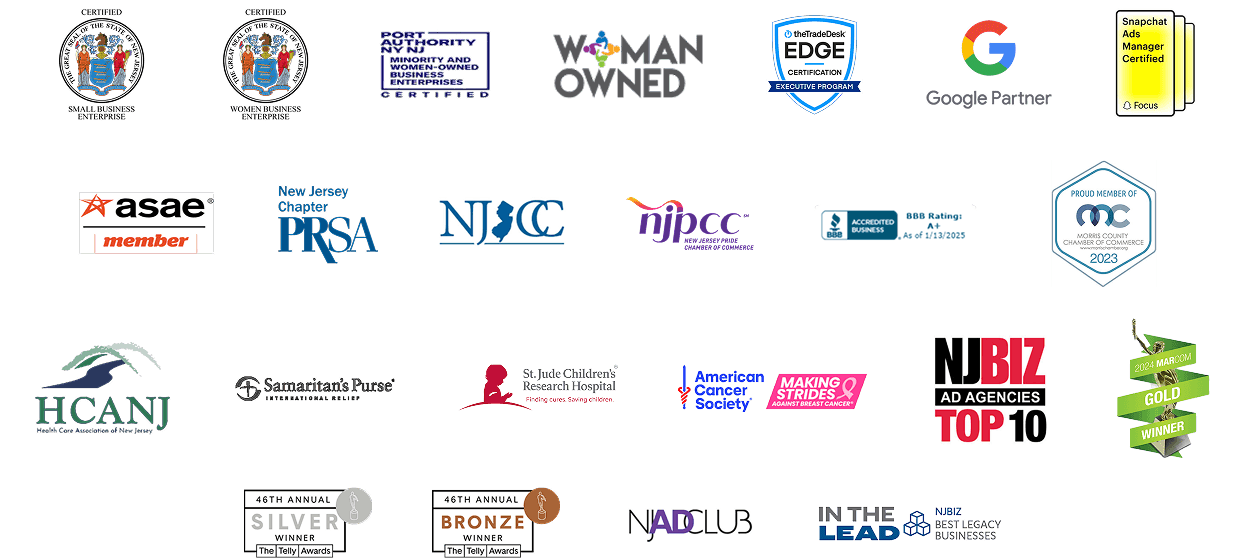WHIPPANY, NJ and HADDONFIELD, NJ (March 2024) – Law enforcement agencies and departments across the country are finding it increasingly difficult to hire the officers they desperately need. It’s a significant public safety issue, one that’s attracting attention from elected officials, community advocates, and the news media.
There are varied, nuanced reasons for this shortage of prospective officers – which is also impacting fire departments and first aid squads – but the only proven solution is professional recruitment support, with specific emphasis on advertising outreach. One such company, with a documented, decades-long record of success in identifying candidates for law enforcement and other first responder positions, is New Jersey-based SCG Advertising + Public Relations.
“When you’re working to recruit local or state police, or any other emergency responders, you need to expect the landscape to change constantly,” explains Mike Gatta, SCG’s vice president of National Development, who oversees the agency’s recruitment advertising practice. “It often happens from one day to the next. Luckily, our years of experience in this specific space give us foundational awareness. We know all the challenges and we know the audience.”
SCG’s experience is both broad and deep. The agency currently is working on its ninth campaign in support of the New Jersey State Police, a client since 2016. Last year, it began to work for the Philadelphia Police Department. It undertook a three-year campaign with California-based Wildfire Defense that concluded in 2022, and has done a range of recruitment projects related to hiring security and prison guards.
When you’re engaged in such a difficult space, it’s not always easy to determine what success looks like. As with most things, it typically comes down to numbers.
“When you’re supporting a public safety recruitment effort, the focus is on generating qualified applicants,” says Gatta. “You measure that both against goals and prior results. I’ll give you an example – with the Philadelphia police, their prior effort before bringing us in cost $1 million and generated 1,000 leads. Our budget was just a fraction of that – $206,000 – and we generated about 1,500 leads. That’s a success.”
While recruiting prospective first responders, it’s essential to realize that – unlike in many other fields — there’s no single media that’s an obvious choice for reaching candidates. In can be digital, or mobile, or social, or broadcast radio, or the local paper, or even billboards. Most often, it’s targeted messaging utilizing a combination of these media outlets.
“From police, to firefighters, to troopers, the individuals we want to reach definitely have things in common,” notes Regina Liu, SCG’s senior account manager and digital strategist. “But their media preferences are across the board – and it’s further complicated by where in the country they live. That’s why it’s essential to always be creative and flexible in connecting with your target audience.”
One of the unique challenges in recruiting for police departments is that there’s never a problem attracting people who’ve always aspired to a law enforcement career. Rather, the challenge is connecting with individuals who are well suited to being police officers, but have simply never envisioned themselves in such a role.
“There are always people considering a change in career paths, so our message needs to connect with them,” says SCG Account Executive Chris Krautheim. “Working closely with our client, we craft a message that basically suggests law enforcement as an attractive, rewarding job.”
Yet another challenge in working for emergency responders is that the requirements can be extremely specific – as well as unique – in terms of education, age, physical fitness, criminal record, and geography. Drug testing is also typically quite rigorous. Determining the effective recruitment solution almost always involves research that leads to a customized strategic approach.
“Every factor has to be analyzed, and no two campaigns are ever quite the same,” Gatta says. “As an example, the first year we worked for the New Jersey State Troopers, we thoroughly audited their past practices, and determined they’d been much too focused on outdoor advertising. That was eight years ago – now, 85% of their entire effort is digital, programmatic, and social.”
One key for SCG is having multiple professionals exclusively dedicated to recruitment advertising.
“Someone trying to do this job without our expertise won’t know how to select and utilize all the necessary tools and tactics,” Gatta says. “And, sadly, it’ll show in their results.”
To read more on our work with law enforcement, check out our other blog on police recruitment and our article on the NASCAR event for NJSP!



